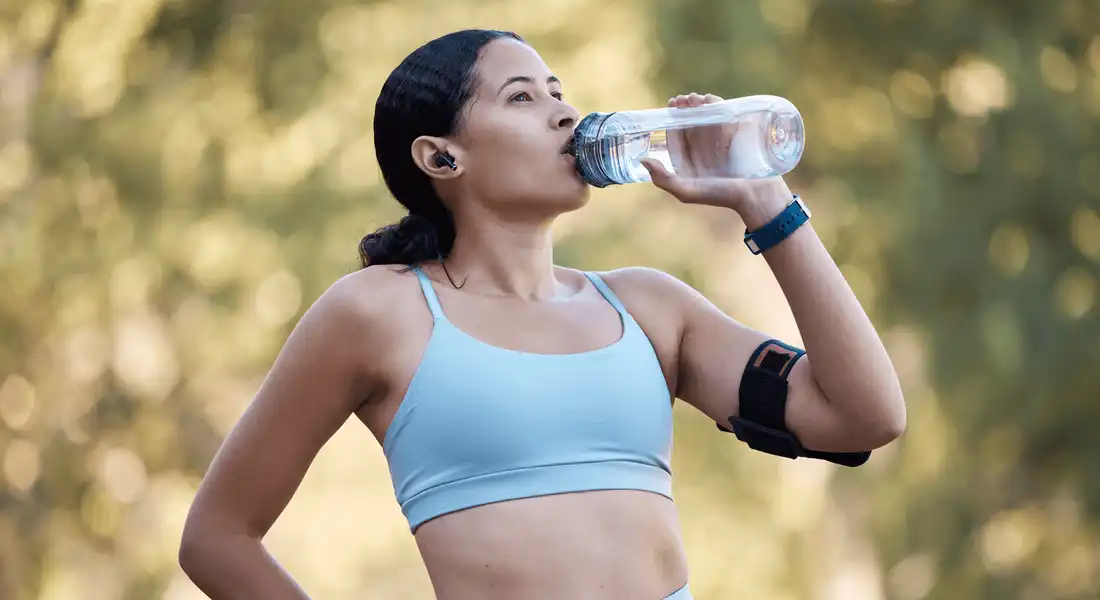
Hydration after exercise
Hydration: The Cornerstone of Athletic Success
In the realm of physical fitness, where dedication, technique, and nutrition reign supreme, one often overlooked yet crucial element stands out: hydration. While the importance of water for everyday life is widely recognized, its significance during exercise often takes a backseat. However, understanding and addressing hydration needs is paramount for optimizing athletic performance, preventing injuries, and safeguarding overall well-being.
The Physiology of Exercise and Hydration
During exercise, our bodies undergo a symphony of physiological changes to meet the demands of heightened activity. Muscles contract, heart rate accelerates, and breathing intensifies, all generating heat as a byproduct. To maintain a stable internal temperature, the body relies on a complex process called thermoregulation, which involves sweating.
Sweat, a vital part of thermoregulation, is composed primarily of water and electrolytes. As we sweat, we lose a substantial amount of fluids. This loss, if not replenished, can lead to dehydration, a state characterized by a deficit in body fluids.
The Effects of Dehydration on Exercise Performance
Dehydration can have a profound impact on exercise performance. It can lead to a range of symptoms, including:
Reduced muscle strength and endurance: Dehydration can impair muscle function, leading to fatigue, decreased power output, and a reduced ability to maintain performance over time. Studies have shown that even mild dehydration, as low as 2% body fluid loss, can negatively impact athletic performance.
Diminished cognitive function: Dehydration can affect concentration, decision-making, and reaction time, hindering performance in sports that require mental acuity. Research has demonstrated that dehydration can impair cognitive function in athletes, affecting their ability to execute complex maneuvers, make quick decisions, and adapt to changing situations.
Increased risk of injury: Dehydration can compromise muscle coordination and joint lubrication, raising the susceptibility to injuries such as sprains, strains, and cramps. Dehydration can also lead to electrolyte imbalances, further increasing the risk of muscle cramps and other exercise-related injuries.
Strategies for Optimal Hydration During Exercise
To ensure optimal hydration during exercise and reap the benefits of a well-hydrated body, it's essential to adopt effective hydration strategies:
Pre-exercise Hydration: Start your day well-hydrated by consuming plenty of water throughout the morning and afternoon. Aim to drink enough to feel comfortably hydrated, ensuring your urine is pale yellow or clear. Consuming fluids before exercise helps to establish a baseline hydration level and prepares your body for the demands of physical activity.
Hydration During Exercise: Regular fluid intake during exercise is crucial to counteract fluid losses and maintain performance levels. The amount of water needed will vary depending on individual factors such as intensity, duration, and environmental conditions. General recommendations suggest drinking 150-250ml of water every 15-20 minutes during moderate-intensity exercise. For more strenuous activities or in hot and humid conditions, higher fluid intake may be necessary.
Post-exercise Hydration: Replenishing fluids after exercise is equally important as it aids in the restoration of body fluids lost during activity. Aim to drink enough to replace the fluids lost, considering the amount of sweat produced during exercise. Post-exercise hydration helps to rehydrate muscles, restore electrolyte balance, and promote recovery.
Monitoring Hydration Levels: A Proactive Approach
Monitoring hydration levels is essential to prevent dehydration and maintain optimal performance. Here are some simple yet effective methods:
Urine Color: The color of your urine is a quick and easy indicator of hydration status. Pale yellow or clear urine indicates adequate hydration, while darker shades suggest a need for increased fluid intake. Monitoring urine color throughout the day and especially before, during, and after exercise can provide valuable insights into hydration levels.
Body Weight: Weigh yourself before and after exercise. A significant drop in body weight can indicate fluid loss and the need for hydration. While body weight fluctuations can be influenced by other factors, tracking changes in weight can help to assess hydration status.
Thirst: While thirst is a natural cue for hydration, it can sometimes be delayed or masked by other factors, such as adrenaline or caffeine. It's important to listen to your body and drink water regularly even if you don't feel thirsty. Don't rely on thirst as the sole indicator of hydration; proactive fluid intake is essential.
Hydration: The Foundation of Athletic Excellence
Hydration is not merely a supporting player in the realm of exercise; it is the foundation upon which athletic excellence is built. By prioritizing hydration, you empower your body to perform at its peak, enhancing your endurance, strength, and overall well-being.
Remember, hydration is an ongoing process, not a quick fix. Make it a habit to drink water consistently throughout the day, especially during and after exercise, and watch as your performance and overall health flourish. Embrace hydration and unleash the true potential of your athletic prowess.
When it comes to achieving your fitness goals, hydration is not an option; it's an essential component of success. By prioritizing hydration, you are investing in your athletic performance, injury prevention, and overall well-being. Make hydration a cornerstone of your training regimen, and watch as your athletic prowess soars to new heights.



